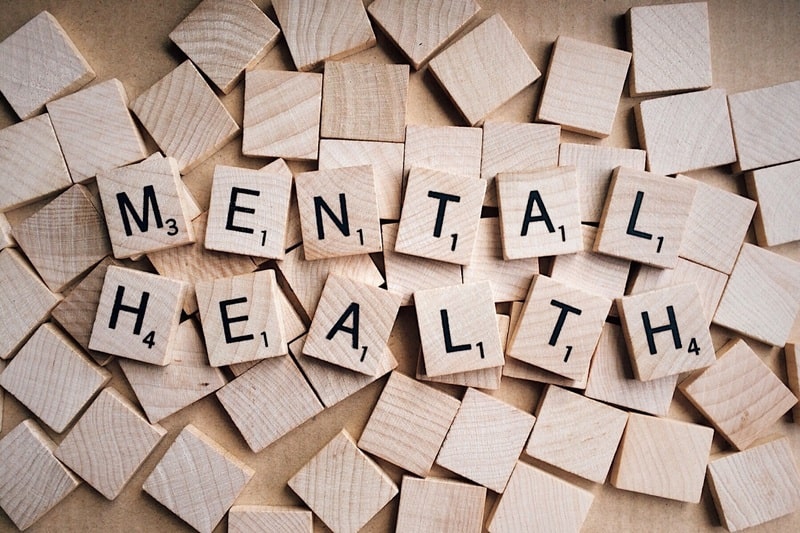
Recent research from the Journal of Psychiatric Research suggests that there is a connection between patients suffering from gingivitis and those living with depression. The study included 6,544 patients with chronic gingivitis and 6,544 without chronic gingivitis. A total of 16.3% of individuals with chronic gingivitis received an initial diagnosis of depression within 10 years, compared to 8.8% of those without chronic gingivitis receiving a depression diagnosis. While the oral systemic link has been discussed for years, these new findings suggest mental health, in addition to physical health, can deteriorate due to poor oral care.
In recent years, we have continued to see a positive and significant association between oral health and the systemic impact that it can have on patients. The current data shared by the Journal of Psychiatric Research further supports the proposed connection between gum disease and depression. The most obvious explanation for the link stems from the behavioral effects of stress, depression, and anxiety. Individuals suffering from these mental illnesses may lose motivation to keep up with their oral health habits, which may lead to significant oral health issues. Depression in particular can cause people to decrease at-home oral hygiene, cancel dental visits, engage in unhealthy diets and increase the likelihood of self-medication and smoking.
On a biological level, depression and anxiety cause significant issues that can impact oral health. The stress that these conditions create manifests itself in the body as a hormone called cortisol. As cortisol levels increase, the immune system gets weaker, leaving the patient at an increased predisposed at-risk of mouth conditions such as gingivitis and periodontitis. Additionally, certain medications prescribed for depression and anxiety can cause dry mouth (Xerostomia). When the oral cavity has a lack of saliva, there is a reduction in antimicrobial and host defense components (immunoglobulins), making the individual more susceptible to cavities and gingival inflammation. The gingival sulcus is a flash point in the body because the gingiva can be the entry point for bacteria to enter. The oral cavity is the most-accessible place in our body for bacteria, so the revelation that oral health can affect our mental health is a topic that many dental professionals are already aware of.
Previous research has long suggested that a common link between oral health and mental health is inflammation. However, today’s modernized and less invasive dental equipment can help address this problem, such as BIOLASE dental lasers, which can manage periodontal disease and which in turn reduces the inflammatory process. Dental lasers can precipitate a complete set of interactions at the cellular level that results in the reduction of inflammation, and thus reduces discomfort and accelerates tissue healing. More specifically, Erbium lasers, such as the Waterlase, are particularly efficient at removing both calculus and biofilm for decontamination, resulting in less inflammation. Having a susceptibility to depression alone does not cause a patient to have poor oral health, but if depression works to suppress good inflammation and enhance bad inflammation, then these connections may begin to unveil.
Many dental professionals are actively consuming research and studies outside of dentistry alone, understanding that oral health directly affects our physiological, behavioral, mental, and overall health. Oral health care professionals can monitor medications of respective patients as related to oral health conditions and potentially interact with the patient’s physicians for their overall well-being. The systemic link can often be overlooked, creating a possible disconnect between patients and their medical providers, because this information is not always as clear to physicians when assessing a patient for mental illness. Overall, it is important to discuss these topics so that oral health care providers can interact with medical professionals to enhance the systemic and mental health of our patients.
About Dr. Samuel Low
Samuel B. Low, D.D.S., M.S., M.Ed., was named Vice President, Dental and Clinical Affairs, and Chief Dental Officer of BIOLASE in October of 2016. Dr. Low is Professor Emeritus, University of Florida, College of Dentistry and Associate faculty member of the Pankey Institute, with 30 years of private practice experience in periodontics, lasers and implant placement. He is also a Diplomate of the American Board of Periodontology and past President of the American Academy of Periodontology.
Dr. Low provides dentists and dental hygienists the tools for successfully managing the periodontal patient in general and periodontal practices. He was selected “Dentist of the Year” by the Florida Dental Association, Distinguished Alumnus by the University of Texas Dental School, and the Gordon Christensen Lecturer Recognition Award. He is a Past President of the Florida Dental Association and past ADA Trustee.
Dr. Low received his Doctor of Dental Surgery (D.D.S.) and Master of Science (M.S.) degrees from the University of Texas at Houston. He also completed his residency in Periodontics at the University of Texas at Houston, and received a Masters of Education from the University of Florida.
RELATED ARTICLES
Mental Health and Dentistry: Know the Signs, Eliminate the Stigma, and Find Help – CLICK HERE
Mental Health Initiative Launches for Dental Professionals – CLICK HERE
The Oral-Psychiatric Link – CLICK HERE











